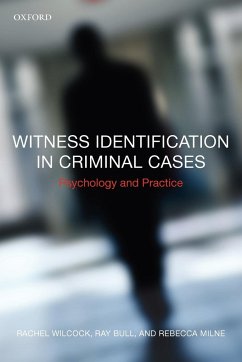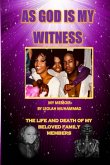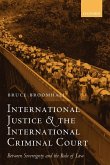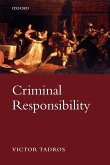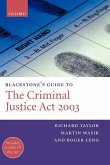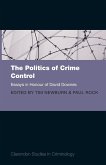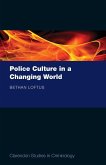Rachel Wilcock, Ray Bull, Rebecca Milne
Witness Identification in Criminal Cases
Psychology and Practice
Rachel Wilcock, Ray Bull, Rebecca Milne
Witness Identification in Criminal Cases
Psychology and Practice
- Broschiertes Buch
- Merkliste
- Auf die Merkliste
- Bewerten Bewerten
- Teilen
- Produkt teilen
- Produkterinnerung
- Produkterinnerung
This book provides a review of recent empirical psychological research findings relating to criminal identification. It offers police professionals and students studying in related areas a book that will inform them about the psychology involved in identification.
Andere Kunden interessierten sich auch für
![Color Atlas of Forensic Toolmark Identification Color Atlas of Forensic Toolmark Identification]() Nicholas PetracoColor Atlas of Forensic Toolmark Identification77,99 €
Nicholas PetracoColor Atlas of Forensic Toolmark Identification77,99 €![As God is my Witness The Life and Death of my Beloved Family Members As God is my Witness The Life and Death of my Beloved Family Members]() Leolah MuhammadAs God is my Witness The Life and Death of my Beloved Family Members47,99 €
Leolah MuhammadAs God is my Witness The Life and Death of my Beloved Family Members47,99 €![International Justice and the International Criminal Court International Justice and the International Criminal Court]() Bruce BroomhallInternational Justice and the International Criminal Court72,99 €
Bruce BroomhallInternational Justice and the International Criminal Court72,99 €![Criminal Responsibility Criminal Responsibility]() Victor TadrosCriminal Responsibility80,99 €
Victor TadrosCriminal Responsibility80,99 €![Blackstone's Guide to the Criminal Justice ACT 2003 Blackstone's Guide to the Criminal Justice ACT 2003]() Richard TaylorBlackstone's Guide to the Criminal Justice ACT 2003141,99 €
Richard TaylorBlackstone's Guide to the Criminal Justice ACT 2003141,99 €![Politics of Crime Control Politics of Crime Control]() Politics of Crime Control70,99 €
Politics of Crime Control70,99 €![Police Culture in a Changing World Police Culture in a Changing World]() Bethan LoftusPolice Culture in a Changing World49,99 €
Bethan LoftusPolice Culture in a Changing World49,99 €-
-
-
This book provides a review of recent empirical psychological research findings relating to criminal identification. It offers police professionals and students studying in related areas a book that will inform them about the psychology involved in identification.
Produktdetails
- Produktdetails
- Verlag: OUP Oxford
- Seitenzahl: 222
- Erscheinungstermin: 11. September 2008
- Englisch
- Abmessung: 234mm x 156mm x 12mm
- Gewicht: 345g
- ISBN-13: 9780199216932
- ISBN-10: 0199216932
- Artikelnr.: 25836868
- Herstellerkennzeichnung
- Libri GmbH
- Europaallee 1
- 36244 Bad Hersfeld
- gpsr@libri.de
- Verlag: OUP Oxford
- Seitenzahl: 222
- Erscheinungstermin: 11. September 2008
- Englisch
- Abmessung: 234mm x 156mm x 12mm
- Gewicht: 345g
- ISBN-13: 9780199216932
- ISBN-10: 0199216932
- Artikelnr.: 25836868
- Herstellerkennzeichnung
- Libri GmbH
- Europaallee 1
- 36244 Bad Hersfeld
- gpsr@libri.de
Rachel Wilcock is a Senior Lecturer at London South Bank University and teaches in the area of forensic psychology. Eyewitness identification is her major research interest and she works with a number of police forces across England and Wales. She has published widely in several peer reviewed journals and presented at a number of national and international conferences on the subject of identification procedures. Ray Bull is Professor of Forensic Psychology at the University of Leicester. His major research topic is police investigative procedures. Professor Bull was part of the team commissioned by the Home Office to write Achieving Best Evidence in Criminal Proceedings: Guidance for Vulnerable or Intimidated Witnesses, Including Children (ABE). Professor Bull has advised a number of police forces on investigative procedures, and has testified as an Expert Witness in a number of trials, several of which involved witness identification. In 2005 he received a Commendation from the London Metropolitan Police for his assistance in a complex rape investigation. He has authored and co-authored a large number of papers in research journals and has co-authored and co-edited many books including Investigative Interviewing: Psychology and Practice. Rebecca Milne is a Principal Lecturer at the Institute of Criminal Justice Studies, University of Portsmouth. She has trained a wide range of professions including police officers in witness interviewing issues, and has performed consultancy work in the UK and abroad. Dr Milne is the Academic Lead of the ACPO Investigative Interviewing Strategic Steering Group and is chair of the associated research sub-committee. She was part the team who wrote a national training package to support Achieving Best Evidence and is currently part of team writing the Achieving Best Evidence: Part 2 document. She is a chartered Forensic Psychologist and an Associate Fellow of the British Psychological Society and an Associate Editor of the International Journal of Police Science and Management.
* 1: Introduction
* 2: Perception, memory, and recognition involved in witness
identification
* 3: Giving person descriptions and the effect of this on the
identification process
* 4: Factors Affecting the Accuracy of Eyewitness Identifications
* 5: Identification by voice or by gait
* 6: The effects of expectations and stereotypes on identification
* 7: Recommendations for conducting identification parades
* 8: Assisting vulnerable witnesses
* 9: New innovations: Applying psychological science to the real world
* 10: Where we are now, and where do we want to go?
* 2: Perception, memory, and recognition involved in witness
identification
* 3: Giving person descriptions and the effect of this on the
identification process
* 4: Factors Affecting the Accuracy of Eyewitness Identifications
* 5: Identification by voice or by gait
* 6: The effects of expectations and stereotypes on identification
* 7: Recommendations for conducting identification parades
* 8: Assisting vulnerable witnesses
* 9: New innovations: Applying psychological science to the real world
* 10: Where we are now, and where do we want to go?
* 1: Introduction
* 2: Perception, memory, and recognition involved in witness
identification
* 3: Giving person descriptions and the effect of this on the
identification process
* 4: Factors Affecting the Accuracy of Eyewitness Identifications
* 5: Identification by voice or by gait
* 6: The effects of expectations and stereotypes on identification
* 7: Recommendations for conducting identification parades
* 8: Assisting vulnerable witnesses
* 9: New innovations: Applying psychological science to the real world
* 10: Where we are now, and where do we want to go?
* 2: Perception, memory, and recognition involved in witness
identification
* 3: Giving person descriptions and the effect of this on the
identification process
* 4: Factors Affecting the Accuracy of Eyewitness Identifications
* 5: Identification by voice or by gait
* 6: The effects of expectations and stereotypes on identification
* 7: Recommendations for conducting identification parades
* 8: Assisting vulnerable witnesses
* 9: New innovations: Applying psychological science to the real world
* 10: Where we are now, and where do we want to go?

